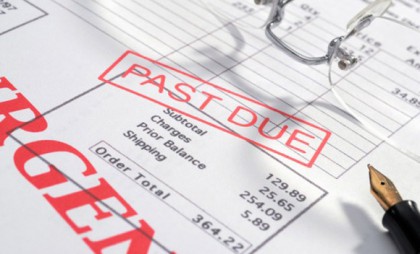Top Class Actions’s website and social media posts use affiliate links. If you make a purchase using such links, we may receive a commission, but it will not result in any additional charges to you. Please review our Affiliate Link Disclosure for more information.

The FDCPA lawsuit accused Americollect of violating certain FDCPA stipulations. A settlement was reportedly reached just after a month of filing.
The FDCPA lawsuit accused Americollect of using “unfair or unconscionable means to collect or attempt to collect any debt.”
Plaintiff Kyle M. paid a $10 bill on a medical account through Americollect in August. However, when he paid the bill, he then discovered that Americollect had two other bills for him to pay for additional medical and dental expenses.
Aurora Health Care was the original source of the bill on one of the accounts. Americollect allegedly took charge of debt payment for Aurora on May 7.
However, Americollect allegedly never informed Kyle of the debt or that Americollect was the debt collection agency for this bill.
When Kyle began to communicate with Aurora directly for information concerning his medical payment, Americollect allegedly “immediately reported the debt to [the plaintiff’s] credit file,” according to the FDCPA lawsuit.
Kyle asked if Americollect would delete his debt from his credit file if he paid the debt. Americollect reportedly informed him that this action would be illegal.
The unfair debt collection lawsuit claimed that Americollect violated the FDCPA through its actions concerning Kyle.
First, Americollect “falsely stated that it was illegal for the company to delete a tradeline in exchange for payment,” according to the FDCPA lawsuit. This action made Kyle wrongly believe that his credit report was permanently affected by this debt.
Americollect also allegedly never sent the plaintiff a 30-day debt validation notice as required by the federal debt collection law. However, Kyle says he never received any notice and could therefore not make any payments on his debt or communicate with Aurora in order to avoid the whole mess.
The FDCPA lawsuit claims that Kyle “has suffered emotional distress and mental anguish” because of Americollect’s actions. For violations of the FDCPA, Kyle was entitled to actual damages, statutory damages, and attorney fees and costs, according to the unfair debt collection lawsuit. For violations of the Wisconsin Consumer Act, Kyle may receive actual, statutory, and punitive damages in addition to actual costs and attorney fees.
The plaintiff requested a trial by jury for his FDCPA lawsuit.
However, on Nov. 19, Kyle submitted a notice of settlement, suggesting that Americollect gave the plaintiff satisfactory compensation for their alleged FDCPA violations.
Kyle is one of many individuals who have filed FDCPA lawsuits against debt collection agencies. FDCPA violations include false statements, threats of lawsuits or arrests, collection of expired debts, failing to cease communication upon a written request, and falsely reporting information on an individual’s credit report.
The FDCPA was passed in 1978 in order to protect individuals against unfair debt collection practices. It also gives people like Kyle the grounds to file unfair debt collection lawsuits against debt collection agencies who are acting in a questionable manner.
This FDCPA Lawsuit is Case No. 1:14-cv-01271, in the U.S. District Court for the Eastern District of Wisconsin, Green Bay Division.
Join a Free Unfair Debt Collection Class Action Lawsuit Investigation
If a lender or debt collector engaged in unfair debt collection practices, you may have a legal claim and could be owed compensation for violations of the Fair Debt Collection Practices Act (FDCPA).
DISCLAIMER: Debt collection itself is not illegal. However, debt collection firms collecting on consumer debts must adhere to the FDCPA. Even though debt attorneys are investigating these companies, their debt collection practices may be legal.
ATTORNEY ADVERTISING
Top Class Actions is a Proud Member of the American Bar Association
LEGAL INFORMATION IS NOT LEGAL ADVICE
Top Class Actions Legal Statement
©2008 – 2024 Top Class Actions® LLC
Various Trademarks held by their respective owners
This website is not intended for viewing or usage by European Union citizens.














